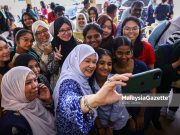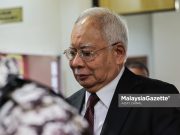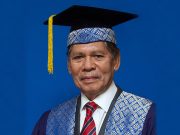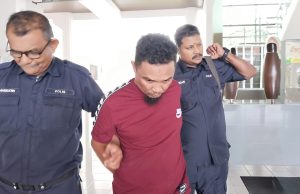By: Assoc Prof Dr Zuwati Hasim
UNESCO Global Report on Teachers highlights that “teachers are central to unlocking every learner’s potential and achieving Sustainable Development Goal 4 of inclusive, equitable and quality education for all” which I believe everyone would agree. With such claim, teachers hold a profound responsibility not only to impart knowledge but also to nurture the holistic development of their students. They wear different hats and serve as guides, mentors, and facilitators, in shaping young minds and instilling students the skills, values, and attitudes needed to thrive in a rapidly changing and challenging world.
While the teaching profession stands at the heart of shaping future generations, it grapples with several challenges that impede its effectiveness and prestige. One major issue is the high workload and limited resources teachers often face, leading to burnout and decreased morale. Malaysian teachers are bogged down with unnecessary administrative and external work that require a lot of time in preparation that at times would take up their teaching hours. This matter has been voiced out over time and there seem to be little action taken to reduce these unnecessary workloads.
Many programmes and instructions from the Education State Office and Education District Offices need to be monitored by the Ministry of Education. In practice, some of instructions given to the schools were incongruent or misconstrued with the MOE initiatives. It is good to have other additional programmes in schools to expose the students to some of the values instilled in the programmes, but the schools must be given autonomy to choose the most relevant for their school context. Eliminating unnecessary programmes, such as the “Best Toilets Competition,” is essential for optimizing resource and time allocation. The initiative aimed at improving facilities and teaching about cleanliness are commendable, but it is crucial to prioritize investments and activities that directly contribute to the core mission and objectives of our education.
The second issue is related to the lack of recognition and competitive compensation for educators. Offering acknowledgment for teachers' efforts is important for cultivating dignity, professional ethos, and drive. Such recognition holds substantial potential in enhancing the societal status of educators. To address these issues and uphold the teaching profession, several strategies can be implemented. Firstly, investing in professional development opportunities where continuous training and support help teachers stay updated with modern pedagogical approaches, techniques, and technologies, and subsequently will enhance their pedagogical practices in the classrooms.
Secondly, providing adequate resources and supportive working environments can alleviate stress and improve job satisfaction among educators. Just look at the existing teachers’ rooms. Do we find they are conducive that could provide comfortable workplace for teachers? Those schools with good PTA support would definitely invest not only in providing good support for the students but also into creating good offices for the teachers. However, for schools with limited support would endure working in such limited conditions – hot, cramped room, with poor ventilation. Hence, in promoting the ‘Sekolah Sejahtera’ initiative, we should not ignore the teachers and their teaching conditions.
Besides, enhancing the status and perception of teaching as a career is essential in transforming teaching profession. This can be achieved through public awareness
campaigns highlighting the importance of educators in shaping society and the economy. Celebrating exemplary teachers and showcasing their impact can inspire others to pursue teaching as a fulfilling profession. Emphasizing the value of education and the transformative role teachers play can instil respect and admiration for the profession. It is the era of technology and while expecting teachers to be digital literate, there should also be an effort from the ministry or even the state or district offices to highlight and showcase, via the various media platforms, on the teachers’ efforts and educational practices that uphold the teaching profession.
However, this should not be made a competition between schools, it should be based on genuine practices and the intention is to motivate other practitioners to adopt and adapt any promising practices shared. This approach could, in the long run, foster positive perceptions of the society towards teachers and teaching profession.
Teachers should be able to think, decide and choose suitable materials, appropriate pedagogical approach, and assessment method. Allowing teacher autonomy may give
rooms to foster innovation and reflective practice, allowing teachers to tailor their instruction to meet the students’ diverse needs.
Autonomy also promotes a sense of ownership hence could increase job satisfaction among teachers. This kind of empowerment leads to a collaborative environment, where peer learning and leadership opportunities thrive. Schools that support autonomy typically have a positive culture and student-centred focus, that leads to aligning with professional standards and ultimately improving educational outcomes for both teachers and students. This was evident in the Teacher-Led Learning Circle for Formative Assessment (T3LFA) project which was coordinated by NUTP in collaboration with Education International, where it was observed that teachers who gained support from the school administrators on teaching and assessment ideas tended to be more creative and motivated towards improving teaching and learning.
In conclusion, transforming the teaching profession requires concerted efforts to address its challenges, uphold its value, and cultivate positive perceptions. By investing in teachers, promoting their status, and fostering a culture of appreciation, we can ensure that the teaching profession thrives and continues to shape a brighter future for generations to come. Happy Teachers’ Day!
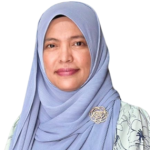
The author is the Deputy Dean of Research at the Faculty of Education, Universiti Malaya, and the Education International (EI) appointed Country Researcher for T3LFA Project


